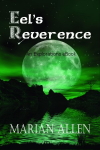I know because I deal with literally hundreds of literary agencies every year.
They're constantly searching for the next hot thing to represent. And if it's sent to them now, they will have enough time to spit polish it before the industry starts back up again in January.
What's so special about January? Editors come back from the holidays with a fresh new perspective. They're also loaded up with their expense accounts all over again so they'll be ready to rock n' roll when they use those accounts to lunch with your new agent.
Expense accounts are often on a "use it or lose it" basis. If the editor didn't use all their "lunch money" last year they'll receive an even less amount this year. It's also around the time when editors and editorial directors have set or about to set their editorial schedules. So, what better time to submit to agents!
If you have something solid and ready, get your query letter together. And it better be good because you only have one shot with these agents. What are agents looking for right now more than ever?
1) Middle grade - If you've written the next Diary of a Wimpy Kid, especially a funny book for boys now's the time to pitch it.
2) Young Adult fiction - Hot, Hot, Hot! If you have a YA book, nothing's hotter in the industry. It's the one genre that has not dipped in sales tremendously. In fact, agencies are adding more agents to their rosters, specifically looking for this genre. More agents means more opportunities for you.
3) Graphic novels - If you're an author who has had a difficult time selling your novel, think about adapting it as a graphic novel. The great thing is, you don't have to be able to draw. Simply align yourself with a great artist. Create a 5-page sample of your work, a detailed summary and presto! That's all you need. 100% of the clients we've done this for have gotten agents.
4) Celebrity Memoirs - If you've got connections to celebrities, even D-List Reality TV star celebrities, this is a sure bet. Submit a solid book proposal "co-written" or ghost written by you and your hot celebrity and two things will happen: 1) The sun will rise tomorrow 2) An agent will request to read your proposal.
5) High Platform Nonfiction - If you have a huge opt-in mailing list, are the president of a large charity or organization, own your own PR firm, or have strong media connections, now's the time to write a book. Remember, if it's a nonfiction book, you only need write a book proposal, not the entire manuscript. With a strong platform, you'll have agents chasing after you instead of the other way around. 100% of the clients we created book proposals for have landed agents and damn good ones within a week or two.
Remember, you only have one shot with these agents. So, make sure your query letter is as solid as possible. If you need help writing a winning query letter, contact: cheryl@gumbowriters.com and we'll help you. 100% of the query letters we've ghost written have received at least 10 top agents that have requested to read their manuscripts or proposals.
~Jeff Rivera, www.HowtoWriteaQueryLetter.com and www.GumboWriters.com
A special note from bestselling author Cheryl Kaye Tardif:
A few years ago I used Jeff's query service. I was stunned by the response, especially after years of "following the rules" on how to write a query letter. Jeff breaks those antiquated rules and delivers a query that really grabs agents' attention. I had dozens of requests for partial and full manuscripts, and after a couple of weeks I signed with a reputable agency. My agent has been so supportive and a real cheerleader in everything I do. I highly recommend Jeff's query service.





